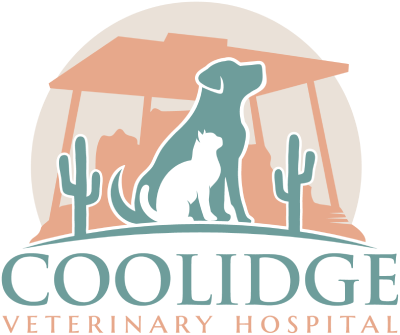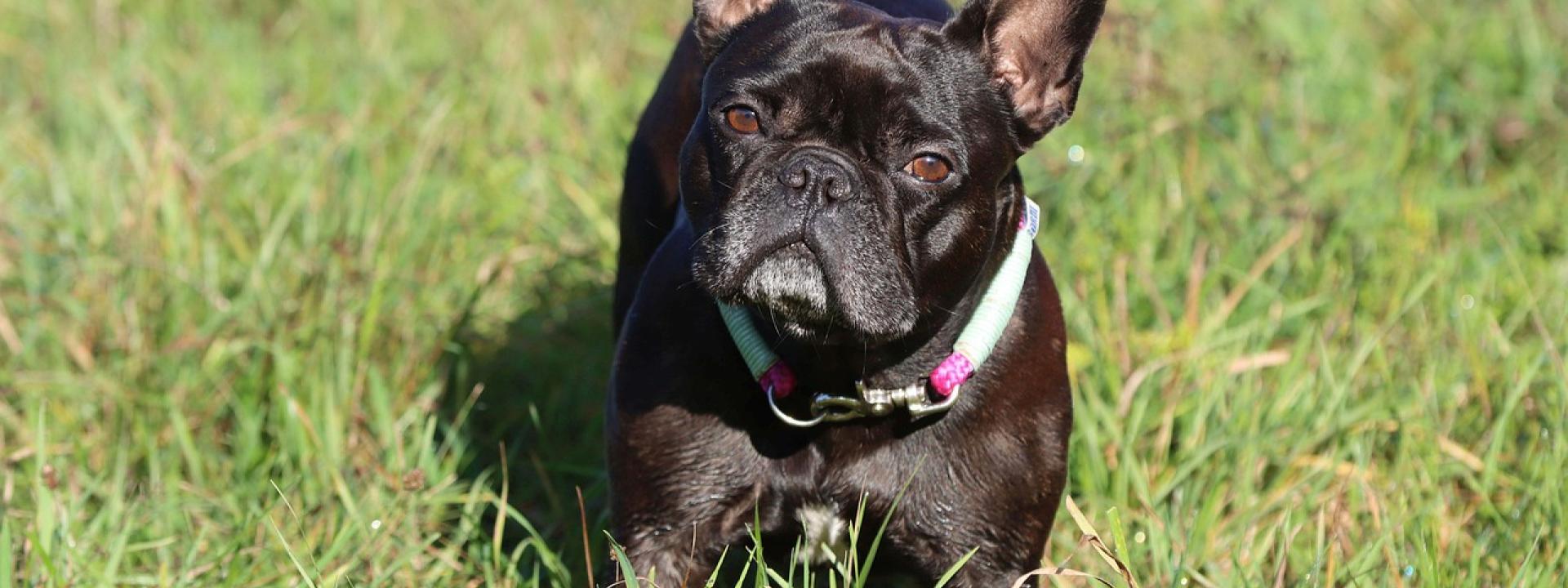What to Feed a Dog with Diarrhea: A Caring Guide from Coolidge Veterinary Hospital
At Coolidge Veterinary Hospital, we’ve cared for dogs and their families in our community for decades, and one thing we know for certain: when your dog has diarrhea, it’s stressful, for both of you. Whether it’s a one-time accident or something more persistent, it can leave you unsure about what to feed, whether to worry, and what steps to take next.
A question we hear often is:
“What should I give my dog to eat when they have diarrhea?”
You’re not alone if you’ve asked that. We put together this guide to walk you through the most helpful steps, from feeding recommendations to warning signs to watch for, so your dog can get back to feeling better, and you can breathe a little easier.
What Causes Diarrhea in Dogs?
Diarrhea can pop up quickly, and for many different reasons. Some are mild and pass within a day or two, but others can point to more serious concerns.
At Coolidge Veterinary Hospital, we regularly see these common causes:
- Eating something unusual or spoiled – including trash, table scraps, or plants
- Sudden changes in diet – even high-quality food can cause a reaction if introduced too fast
- Stress or anxiety – changes at home, travel, fireworks, or boarding
- Parasites – such as giardia, roundworms, hookworms, or coccidia
- Viral or bacterial infections – like parvovirus, distemper, or salmonella
- Food sensitivities or allergies – which can cause ongoing soft stools
- Side effects from medications – especially antibiotics or anti-inflammatories
- Chronic diseases – including pancreatitis, IBD, or Addison’s
- Toxin ingestion or foreign body – such as chewing on bones or swallowing toys
If your dog has a soft stool but is acting otherwise normal, eating, drinking, and alert, you may be able to manage things at home. But if diarrhea is severe, prolonged, or accompanied by other symptoms, give us a call so we can take a closer look.
Step 1: Should I Withhold Food?
In some cases, a short break from food can give your dog’s digestive system time to rest and recover.
We typically recommend withholding food for up to 12 hours if your dog:
- Is otherwise healthy
- Is not vomiting
- Is drinking water
- Is alert and behaving normally
But not all dogs should fast. It’s important not to withhold food if your dog is:
- A puppy under 6 months old
- A small or toy breed (they can develop low blood sugar quickly)
- A senior dog or one with a chronic illness (like diabetes)
- Acting lethargic, refusing water, or vomiting
When in doubt, call us at Coolidge Veterinary Hospital and we’ll advise you based on your dog’s age, breed, and health history.
No matter what, always offer water. Dehydration is a serious concern during diarrhea, so make sure your dog has access to clean, fresh water at all times.
Step 2: Offer a Bland Diet
Once your dog’s stomach has rested (or if fasting isn’t advised), the next step is to feed a bland, gentle diet. These simple ingredients help calm the gut and provide energy without further upsetting the stomach.
The goals of a bland diet:
- Soothe the GI tract
- Improve stool consistency
- Avoid triggering more diarrhea
- Provide essential hydration and calories
Here are our go-to bland diet options at Coolidge:
- Boiled Chicken and White Rice
- Use boneless, skinless chicken breast or thigh
- Boil until cooked through, then shred it
- Pair with plain, fully-cooked white rice (brown rice is harder to digest)
- Use a 1:2 ratio of chicken to rice and offer in small servings
- Boiled Ground Turkey and White Rice
- Great alternative for dogs who don’t tolerate chicken
- Use lean, plain ground turkey, fully cooked and drained of any grease
- Boiled Lean Ground Beef and Rice
- Only use 90% lean or higher beef and drain fat completely
- Avoid fatty cuts, too much fat can worsen GI issues
- Prescription GI Diets
For moderate to severe diarrhea, we may recommend specially formulated veterinary diets like:
- Hill’s Prescription Diet i/d®
- Royal Canin Gastrointestinal Low Fat®
- Purina Pro Plan EN®
These diets are formulated for high digestibility and nutrient absorption, and they’re often very effective in dogs with sensitive stomachs. We can send you home with a few cans or a starter bag if needed.
Step 3: Feeding Schedule and Portion Size
When your dog is recovering from diarrhea, feeding small, frequent meals is best. This reduces stress on the digestive system and allows nutrients to be absorbed slowly.
We recommend:
- Feeding 4–6 small meals per day
- Starting with about 1 tablespoon of food per 10 pounds of body weight per meal
- Increasing gradually if stools are improving and no new symptoms appear
Once your dog’s stool begins to firm up, you can start transitioning them back to their regular diet over 5–7 days:
- Days 1–2: 75% bland diet / 25% regular food
- Days 3–4: 50/50 mix
- Days 5–6: 25% bland / 75% regular food
- Day 7: Return to 100% regular food
Slow transitions are key to avoiding another upset.
Step 4: Don’t Overlook Hydration
With diarrhea, your dog loses not only water but also electrolytes. Keeping them hydrated is crucial, especially in hot Arizona weather.
Watch for signs of dehydration:
- Dry gums or nose
- Sunken eyes
- Skin that doesn’t bounce back quickly when gently pinched
- Fatigue or weakness
If your dog isn’t drinking well, you can:
- Offer unflavored Pedialyte (diluted) after speaking with our team
- Add a small amount of low-sodium broth to their water
- Try ice cubes as a fun and cooling hydration source
In more serious cases, we can administer subcutaneous fluids in-clinic or provide IV fluids if dehydration is severe.
Step 5: Support the Gut with Probiotics
Diarrhea often disrupts your dog’s gut microbiome. Adding a vet-approved probiotic can help restore good bacteria, shorten recovery time, and improve stool quality.
Trusted probiotic options we recommend include:
- Purina FortiFlora®
- Proviable® (DC or KP formulations)
- Visbiome Vet®
Be sure to use a dog-specific probiotic, not one made for humans. We’re happy to recommend and provide the best option for your dog’s needs.
What to Avoid Feeding During Diarrhea
While your dog is recovering, it’s important to avoid anything that could irritate the digestive tract, including:
- Fatty meats or skin
- Table scraps or seasoned foods
- Cheese or other dairy
- Store-bought treats (unless vet-approved)
- High-fiber ingredients like pumpkin (can help later but not during the early stages)
- Raw food or bones
Stick with gentle, bland ingredients until your dog is fully back to normal.
When to Call Coolidge Veterinary Hospital
Some dogs bounce back quickly from diarrhea, but others need medical attention. Call us right away if you notice:
- Diarrhea that lasts longer than 24–48 hours
- Vomiting in addition to diarrhea
- Blood in the stool (bright red or black, tarry appearance)
- Lethargy, shaking, or collapse
- Refusal to eat or drink
- Symptoms in puppies, seniors, or dogs with chronic conditions
We can run fecal tests, bloodwork, abdominal x-rays, and other diagnostics right here in the clinic to determine what’s going on and help your dog recover safely and comfortably.
For Ongoing or Chronic Diarrhea
If your dog experiences diarrhea frequently or over a longer period, there could be an underlying issue that needs management.
Chronic diarrhea may be linked to:
- Food intolerances or allergies
- Inflammatory Bowel Disease (IBD)
- Exocrine Pancreatic Insufficiency (EPI)
- Pancreatitis
- Addison’s Disease
- Liver or kidney disease
- Stress or anxiety-related GI upset
We’ll work with you to develop a customized treatment plan, including specialized diets, supplements, and ongoing monitoring to support your pet’s long-term health.
From All of Us at Coolidge Veterinary Hospital
At Coolidge Veterinary Hospital, we care for pets like family. We know that when your dog doesn’t feel well, it affects your whole household and we’re here to help you through it.
From a quick call for advice to in-depth diagnostics and treatment, our doors are open and our team is ready to support you every step of the way.
If you have questions about diarrhea, feeding, or anything else, don’t hesitate to reach out. We’re your partners in keeping your dog healthy, happy, and back to wagging in no time.

